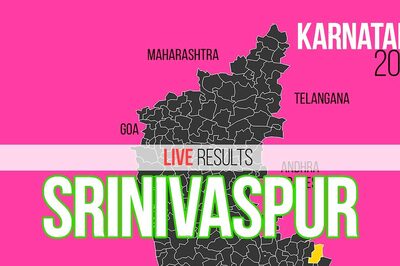
views
New Delhi: MS Swaminathan, who had headed the national commission for farmers, happens to be one of the few non-political faces who enjoys great popularity in the hinterland. As lakhs of farmers descended on Delhi throughout 2018 to protest against the rising difficulties in farming, all of them had one demand in common — implementation of the MS Swaminathan report.
In an interview with News18, Swaminathan expresses how all budgets have merely paid "glorious verbal tributes" to farmers with no financial help. The Indian geneticist also elaborated on the real issues behind the agrarian crisis and how loan waivers make a farmer eligible for another loan.
Edited excerpts:
Farmers all over the country are angry. What are the major reasons and how do we address them?
Income is the primary reason. Farmer’s income can be increased if we are able to assist farmers to come together and set-up rice biopark, where every part of the plant becomes a marketable commodity. We have shown this at Nay Pyi Taw, Myanmar. Biomass utilisation should become a method of increasing the income from sources other than the grain.
Do you expect the upcoming budget to be agri-inclined? What are your major expectations from the 2019 budget?
All budgets provide lip service to the farmers. At the very beginning of the budget speech, glorious tributes are paid to the farmers. However, this verbal tribute is not followed-up by financial help. This is one of the reasons for farmers taking to the pathway of agitation like Kisan Mukti March.
Do you sense that loan waivers are becoming merely an election agenda? How sustainable are they in the long run?
Loan waivers help to achieve eligibility for another loan. This cannot be a permanent method of making agriculture economically viable. The alternative to loan waiver is the provision of inputs like seeds for which the loan is sought.
The agrarian crisis is an economic crisis. The monsoon and the market are two major determinants of the viability of small farmers. Political leaders should not promote economically non-viable policy just for electoral gains.
Apart from implementing the ‘C2+50 percent’ formula, what else can be done to increase farmer income? Do you think it is time for universal basic income and direct benefit transfers to be implemented to elevate the financial status of farmers?
A clear cut agriculture pricing policy like ‘C2 plus 50’ is the answer to the uncertain income of farmers. It should therefore be institutionalised.
A considerable number of farmers borrow money from private lenders, of which there is no documentation. Therefore, loan waivers do not apply to them. Apart from trying to ask them to opt for bank loans, what can immediate relief can be provided to them?
MSP alone may not help farmers, unless there is a clear cut procurement policy. Procurement at the announced MSP and public distribution are important. It is true that we need better documentation of loans. This can be done at the Panchayat level by a Panchayat farm credit committee.
Apart from the minor recommendations such as 4% interest rate to farmers, what do you think is stopping the government from implementing the major conclusions of the national farmer commission headed by you, especially when all farmer rallies are demanding the MS Swaminathan report to be implemented?
Farmers are demanding the implementation of my report since it is the first time either in colonial or independent India a commission had been set up to look at the farmers of farmers and not just farming.
Given that the report was submitted almost 10 years ago, are there other issues that have cropped up in the present scenario? What are they and how do we deal with them?
It is unfortunate that for 10 years no action has been taken. Actions seem to be forthcoming only if there is agitation.
How far has the Indian market been able to take care of the demand aspect when it comes to farm produce?
The Indian market is quite capable of taking care of the demand aspect provided fair prices are given.
Unlike before, bumper crops are more of a problem to farmers where the produce either remains unsold or vended at lower prices. Why has that phenomenon set in and what can be the solution to generating more demand?
There will always be ups and downs in production. What is important is to develop and implement and yield prediction scheme.
The farm distress has a psychological effect as well. Do you think in the natural progression, children of farmers would go on to opt away from farming? Do you see a macro-level shift happening? What can be consequences?
Farmers’ distress has created a sense of despair and sorrow in villages. It is only those who go to rural areas who will be able to understand the dimensions of agrarian distress. Farmers are life savers but they have now been forced to take their own life.
Women farmers are currently not eligible for credit. Why do you think that is the case? What happens in families where the male member is absent but farming continues?
It is unfortunate that women farmers are being made ineligible for credit because of the absence of pattas for land. This should be changed and all farmers should be made eligible for institutional credit.
Do you think climate change has been a major cause of the distress? Are there sustainable ways to deal with this given monsoons have been erratic?
Climate change is the major problem but it can be managed. Climate risk management should become part of the extension services and Krishi Vigyan Kendras.
Urea is a major fertiliser that is also facing a serious shortage in supply while demand increases linearly making its cost rise. What can be the Centre's role here and how do we mitigate the mismatch?
Urea is important but the shortage can be overcome by cereal-legume rotation, particularly with legumes which can fix nitrogen both in the root and the stem.
The Centre said in the Lok Sabha on Wednesday that they have no data on farmer suicides since 2016. Do you think this is an attempt pretend a rosy scenario? How do you perceive this?
I do not know why data on farmer’s suicides have been gathered. We cannot avoid an unfortunate situation by closing our eyes with a problem.
There have been promises of doubling farmers' income by 2022, implementation of the national commission for farmers report was also a pre-poll promise. Do you think the Centre has done enough on the ground for the farmers in the last four and a half years?
Doubling of farmer’s income has become a slogan. It can be done provided there is value addition to every part of the rice plant, as demonstrated by MSSRF in Myanmar through the establishment of rice biopark.




















Comments
0 comment